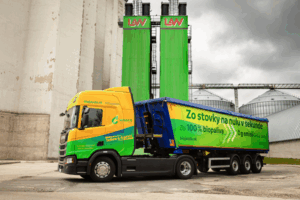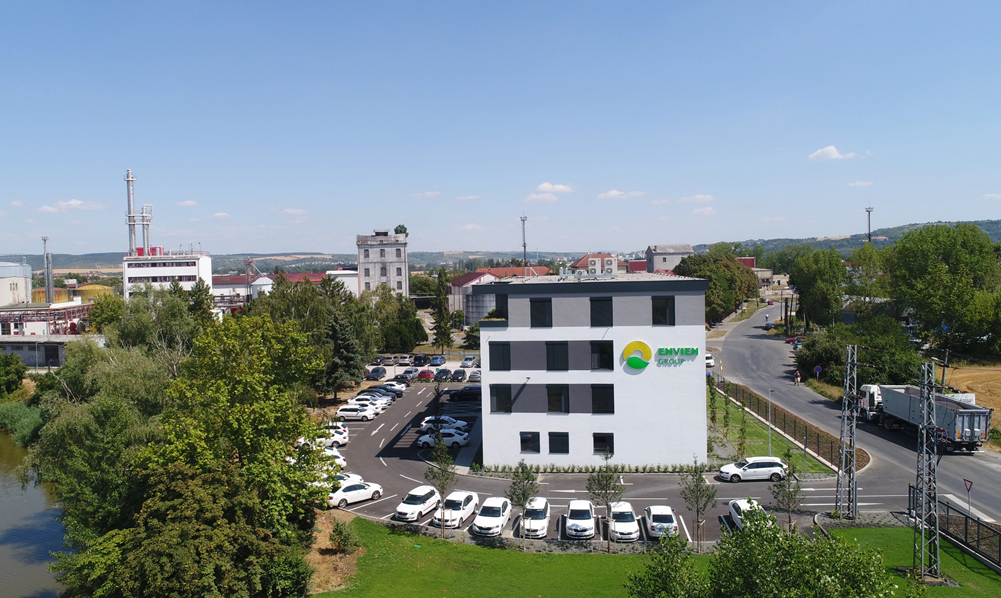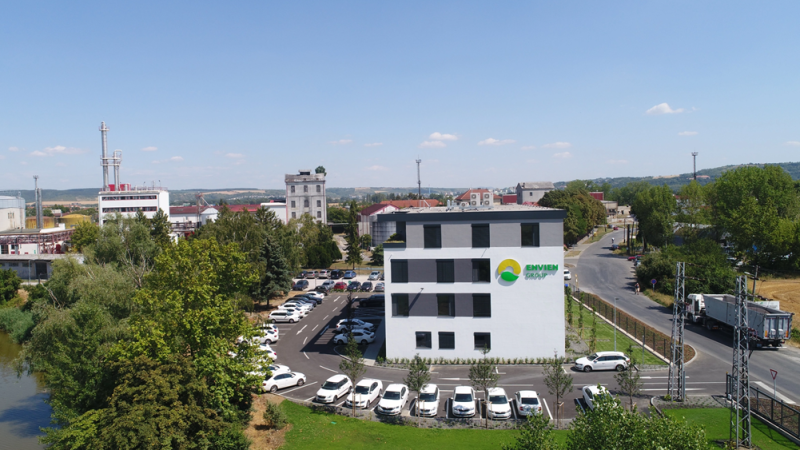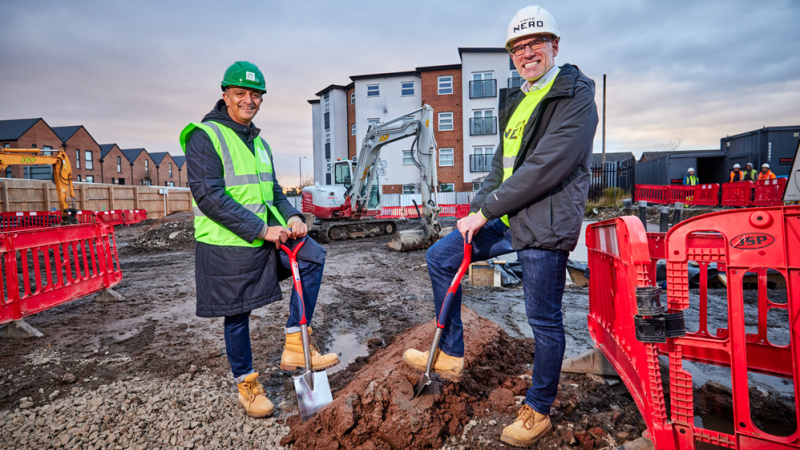Envien Group has been at the forefront of sustainable energy solutions for over two decades. Founded in the early 2000s and headquartered in Slovakia, the group has evolved into a key player in the European biofuel sector, consistently expanding its footprint across multiple regions.
Looking back, Envien Group CEO Peter Kostík, who was the first official employee of Enviral, recalls how the business started: “Around 2003, we recognized the opportunity and potential for production of bioethanol added to automotive fuels. At that time, Slovakia was about to join the European Union, and it was expected that emphasis on renewable energy sources would increase. Leveraging our expertise in food-grade alcohol production, we embarked on a new project, establishing a bioethanol factory and the Enviral, a.s. company. This laid the foundation for what would later become Envien Group.”
Sustainable Player
Envien officially began bioethanol production in 2007, marking the beginning of a steady expansion. Today, Envien Group consists of a number of companies operating in seven countries worldwide – Slovakia, Poland, Czechia, Hungary, Switzerland, Malta and India.
What is behind Envien’s impressive growth? “Key drivers were, no doubt, all the hard work of our colleagues, their enthusiasm and determination to make the business succeed including successful risk management, combined with a favourable market environment, and, clearly, a bit of luck,” says Peter Kostík. “Our management has an entrepreneurial mindset, and together with visionary approach of our shareholders we embrace flexibility, enabling quick decision-making and swift responses to emerging opportunities.”

Clearly, increasing global demand for eco-friendly alternatives was also a factor that pushed business growth. Biofuels derived from biomass are renewable energy sources that contribute to reducing greenhouse gas emissions produced from fossil sources. Envien Group specializes in producing both first-generation biofuels—mainly made from corn and rapeseed oil—and second-generation biofuels, which utilize agricultural residues, used cooking oil & other waste products.
The company has recently engaged in an impressive initiative, the biojazda.sk (bioride.eu) project that effectively proves that biodiesel can seamlessly integrate into various transportation and agricultural sectors without major operational disruptions or costly investments. Its implementation requires no major investments, and from the user’s perspective, almost nothing changes, says the company.
“Drivers do not need to adjust their driving habits, alter their routes, or worry about vehicle range. Of course, vehicles and machinery must be equipped with engines compatible with biodiesel, but for those using B20 or B30, the cost is comparable to conventional diesel, while B100 is only slightly more expensive. Additionally, operating expenses remain largely unchanged, with real-world truck operations showing no difference in fuel consumption between B100 and regular diesel. To showcase the feasibility of biodiesel in practice, our entire fleet operates on B30, proving that this fuel is a viable alternative in everyday use.”
Venturing into Overseas Markets
Biofuel production has enormous potential and Envien Group is now bringing forward its ambitious plan for expansion outside the European Union. “In 2023, We established a separate “Overseas” division within Envien Group which seeks expansion opportunities further afield, given that market conditions in the EU have deteriorated due to complex legislation and consistently changing regulation,” Kostík points out.
“We are now implementing our first overseas project – construction of a new ethanol plant in India. With a capacity of 180,000 litres per day, i.e. around 60 million litres annually, the plant will utilise broken rice and corn as feedstock. The project is now in its second half of implementation and should be completed in Q3 this year.”
“Furthermore, we are currently in the final stage of preparations for entering the Brazilian bioethanol market.”
Collaboration with local partners is a key aspect of foreign expansion, he affirms. “Envien Group chooses a strategy of equal co-ownership, ensuring an even distribution of risks and benefits between partners. In any new territory we choose a local partner with a proven track record, a company that is on the same wavelength. This model has proved to be effective in building trust and stability.”
The company plans to continue expanding its biofuel activities, seeing potential in developing countries to reduce construction costs by up to 40 per cent. Envien’s expansion strategy is guided by key factors such as supportive legislation, raw material availability, environmental priorities, and favourable business conditions, Kostík further explains.
One of the group’s main priorities is securing key raw materials for its future and existing plants and regions outside the EU, particularly in Southeast Asia, offer significant opportunities not only in terms of local biofuel production but also as being an important raw material base.
“We see great opportunities in developed biofuel markets such as South America, the United States, and Indonesia, as well as in developing markets such as the Philippines, Vietnam, and the wider Middle East and Africa (MEA) region. However, increased overseas activities will by no means lessen our focus on our European operations. Strengthening our European business is one of our strategic pillars,” he affirms.
The Future of Biofuels
Biofuels remain at the core of Envien Group’s business strategy. As the company continues to expand, it seeks new opportunities in an increasing share of renewable energy in the transport sector, emphasizing sustainability and circular economy principles.

“Decarbonisation aspects, i.e. reduced dependence on fossil fuels, local agriculture economy support and the circular economy will generate further opportunities in biofuels. However, from a long-term perspective, it will be imperative to create favourable conditions for sustainable business operations.”
Since biofuels currently face high production costs and taxation comparable to fossil fuels, Envien Group advocates more equitable tax policies that align with their environmental benefits. “I believe that biofuels should be taxed in a manner similar to other decarbonization solutions rather than being subject to the same rates as fossil fuels, as is the case today.”
“We certainly support the Green Deal vision and the improvement of our environment. However, the goals, as they have been set and presented so far, are unrealistic within the current time frame. We advocate the principle of technological neutrality. When decarbonizing transport, a mix of low-emission fuels is the solution; these should include biofuels.”
Speaking about the future, he notes that in the long term, Envien is committed to increasing the share of waste-based raw materials in its production, further enhancing emission savings, and continues to look for ways to reduce the carbon footprint of its plants and products.
“It is difficult to predict the future right now, but most experts agree that biofuels should be considered carbon neutral. The EU’s Renewable Energy Directive, set to be transposed into national laws by 2025, will play a crucial role in shaping the future of biofuels in Europe. So we will have to see. In any case, our strategy is clear – to support the development of our companies in the EU, while at the same time increasing our global presence.”







